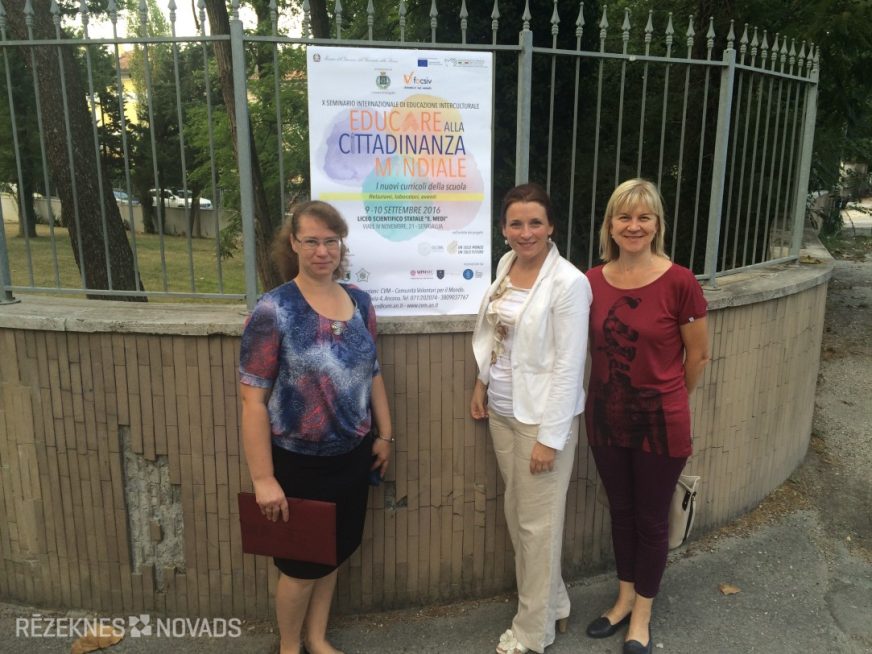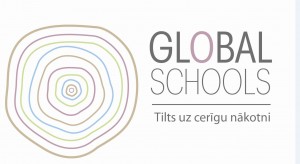Cultural dialogue as a priority of future education

The dialogue between different cultures and the acceptance of each individual identity as well as awareness of the fact that every one of us is a full part of society -- these were the main accents highlighted in the conference:Education for Global Citizenship“September 9-10 of that year in Italy, Senigallia. In the framework of the project“ global school ”, this conference was attended by Inta Ozolniece, head of the Rēzekne Municipality Project, Marina Šarigina and Tiskad High School teacher Jelena Bažanova.
Global education offers knowledge, skills and attitudes that are essential for us all in order to focus in modern world processes, be able to take reasonable decisions and take active action. It teaches you to feel other people and understand that the lives of other people have the same value as ours.
Marcello Flores, Professor of Siena University (Italy), stressed that the European Schools need not only the teaching of learning content but also the methods of providing it. Education should be based on the development of practical skills and intercultural dialogue should be included in the school agenda.
The anthropologist and journalist Alberto Salza (Alberto Salza) talked about different cultures based on personal experience. He concluded that knowing himself was a lasting process and should not be based on economic thinking.
Un expert Jin Fabre noted the importance of developing critical attitudes and stressed that all things should be understood globally. As regards school education, he said that the learning process should be organised so that the pupil is an active researcher and practitioner rather than a passive listener.
Italo Fiorin said of his experience with the students. His main opinion – the child will be more active if he is interested in the project. And it can only be achieved through the disclosures of the child's emotions.
Nelson Mandale has the expression “education is the most powerful weapon that can change the world”, so it is particularly important that the sense of responsibility – the way the teacher teaches pupils today – will depend on the future of our and our children. Each person has ethical duties and responsibility for others. Global education helps everyone understand what happens next to themselves and how we can influence our everyday life and future in the world we live in.
How do we feel when others don't accept us? Can we trust others by giving our hand and helping each other get out of a fairly complex situation? This can be heard on 22 September, when 24 school teachers are presented in the practice sessions.
Thank the local government of Rezekne and the organisers of the project for the excellent opportunity to gain new knowledge that inspired us to think globally.
Yelena Bajanova, Marina Charigin,
members of the project “global school”






This project is financed by the support of the European Commission. This publication reflects only the opinions of the author and the Commission cannot be liable for any possible use of the information contained therein.